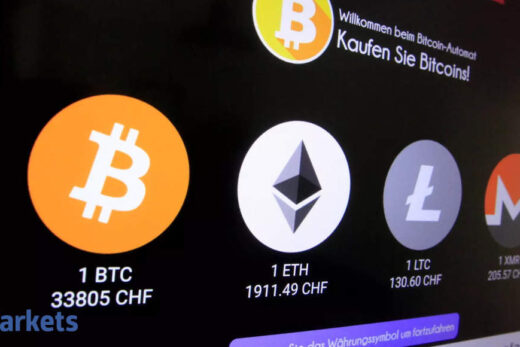Every time he tweets about cryptocurrencies, the market seems to react to them. As an aftermath of these tweets, CoinSwitch Kuber stated that there is usually a surge in their trade volumes.
Does that indicate that Elon Musk’s tweets are solely responsible for the crypto market movements? Let us discuss it in more detail.
Twitter, Elon and cryptocurrency
Elon Musk’s tweets are known for his pronouncements on cryptocurrency. He has amassed a considerable fanbase in the crypto market using Twitter.
In 2014, Elon first mentioned bitcoin to be ‘probably a good thing’. Soon rumours were stating that he could be Satoshi Nakamoto (pseudonym of the Bitcoin founder). As a response, the entrepreneur tweeted. “Not true. A friend sent me part of a BTC a few years ago, but I don’t know where it is.”
By 2019, the scepticism around cryptocurrency took a better turn for Elon as he ventured into a more committed crypto journey. He started considering its technology and utility as a potential component of his business models.
Amidst many institutions such as Microstrategy, Square etc., coming forward
to invest in Bitcoin as a hedge against inflation, Tesla announced that they had invested in $1.5 billion worth of Bitcoin. Eventually, Elon also tweeted that Tesla will be accepting payments for their cars in Bitcoin too. The announcement came as a big cheer for the crypto community, and many new investors entered the market. An institutional giant such as Tesla backing the game only added to its credibility. Soon after he announced this, Bitcoin reached its then all-time high price of $58,000.
Elon Musk changes his mind
In April, Tesla sold 10% of its Bitcoin holdings, causing panic among investors. Elon responded to this with a tweet stating that Tesla sold Bitcoin only to test its liquidity and that he still holds his Bitcoin investment.
Soon after this, Elon Musk broke the hearts of many investors with tweets that seemed to question the environmental impact of the asset. He sent out a tweet that said Tesla would no longer be accepting payments in Bitcoin owing to the high energy consumption of Bitcoin in the mining process.
This decision sent cryptocurrencies into a downward spiral, and Bitcoin fell to nearly $30,000.
When confronted about his stance on crypto, his tweet read, “The true battle is between fiat & crypto. On balance, I support the latter”.
Earlier this week, he continued to toy with crypto. He took to Twitter to indicate his support to help miners make their processes greener. Following the tweets, Bitcoin jumped 19% to trade at $39,944, which had earlier slumped to nearly $30,000.
Are Elon’s tweets solely responsible for the crypto volatility?
The above account seems to paint a picture that Elon has the power to move the crypto markets with his tweets. However, a deeper look into the working of crypto as an investment suggests otherwise.
We could distinguish the price cycle of any asset into four phases – Accumulation, Markup, Distribution and Markdown. This natural cycle that any investment goes through is vital for its growth and sustenance in the long run.
When the crypto market picked up towards the end of 2020, it went through the accumulation phase, where many investors entered the market. Towards mid-February 2021, the currency marked up and settled at an all-time high of $60,000. The distribution phase began when the RSI indicator showed that the asset was overbought, slowly triggering a markdown.
The meltdown in the case of cryptocurrencies has indeed taken a toll on investor sentiments. However, the fall was not sudden because Elon is tweeting a bunch about it.
If you take a look at the historical prices of BTC, you will notice that there was a steep fall in its value even before Tesla made any announcements.
 ET Spotlight Special
ET Spotlight SpecialSoon after the largest cryptocurrency hit its all-time high of $63,729, it hits a significant dip in its value on 25th April before it recovers slightly.
Elon Musk took a U-turn regarding his opinion on Bitcoin later on 12th May, indicating that it was not the first downtrend in its value.
Many technical analysts believe that Bitcoin was overbought at that point and needed a trigger to fall and correct itself. Elon Musk’s tweet just acted as a catalyst for the much-anticipated correction in the crypto market.
Will the crypto market recover?
Bitcoin has fallen over 30% this month, but its value remains 300% higher than last year. The fall of this scale could be a tiny blip for an asset with great potential, such as Bitcoin itself.
Elon Musk questioning Bitcoin’s environmental impact did indeed play a role in affecting the investors’ sentiments. However, it was not the sole reason for the market fall. Just like his tweets, many other factors only act as a catalyst for driving investor sentiments.
Extreme volatility isn’t a new phenomenon but an innate characteristic of this new asset class. Volatility is what enables intense growth in the value of cryptocurrencies.
However, attributing the rise and fall of a global asset to just one person’s actions seems unwise. Cryptocurrency is not owned or controlled by a single individual/organization. It is a community in itself.
While there may be trigger points for investor sentiments, exchanges like
CoinSwitch Kuber
believe that cryptocurrencies’ long-term outlook remains bullish.
Disclaimer: The above content is non-editorial, and TIL hereby disclaims any and all warranties, express or implied, relating to the same. TIL does not guarantee, vouch for or necessarily endorse any of the above content, nor is responsible for them in any manner whatsoever. The article does not constitute investment advice. Please take all steps necessary to ascertain that any information and content provided is correct, updated and verified.



